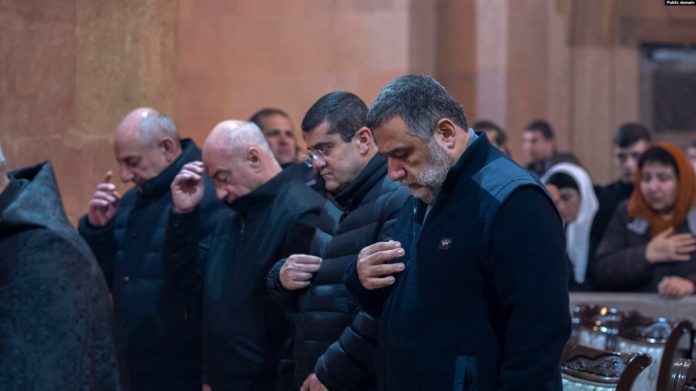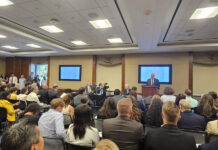By Ruzanna Stepanyan and Gayane Sarikbekyan
YEREVAN/STEPANAKERT (Azatutyun.am) — Ruben Vardanyan, the Nagorno-Karabakh premier, refused to resign over the January 14-15 weekend amid speculation that the Armenian government is seeking his ouster because of Azerbaijan’s continuing blockade of Karabakh’s land link with Armenia.
Armenian Prime Minister Nikol Pashinyan was criticized by Karabakh’s leadership after claiming on January 10 that the international community has always regarded the disputed region as an integral part of Azerbaijan. Pashinyan also said his government must only deal with Armenia’s problems and that the authorities in Stepanakert should themselves settle the conflict with Baku.
In a joint statement issued the following day, Karabakh’s government and main political factions said Pashinyan’s remarks undermine the Karabakh Armenians’ right to self-determination. Vardanyan went further, linking them with Azerbaijani President Ilham Aliyev’s latest statements on the conflict also made on January 10.
Pashinyan responded on January 12 by urging the Karabakh leaders to tone down their rhetoric and negotiate with Azerbaijan in order to end the Azerbaijani blockade.
That was followed by reports that Arayik Harutyunyan, the Karabakh president, wants to sack Vardanyan and force snap presidential and parliamentary elections. Artur Tovmasyan, the Karabakh parliament speaker, did not rule out the possibility of such elections when he spoke to RFE/RL’s Armenian Service on Saturday.








